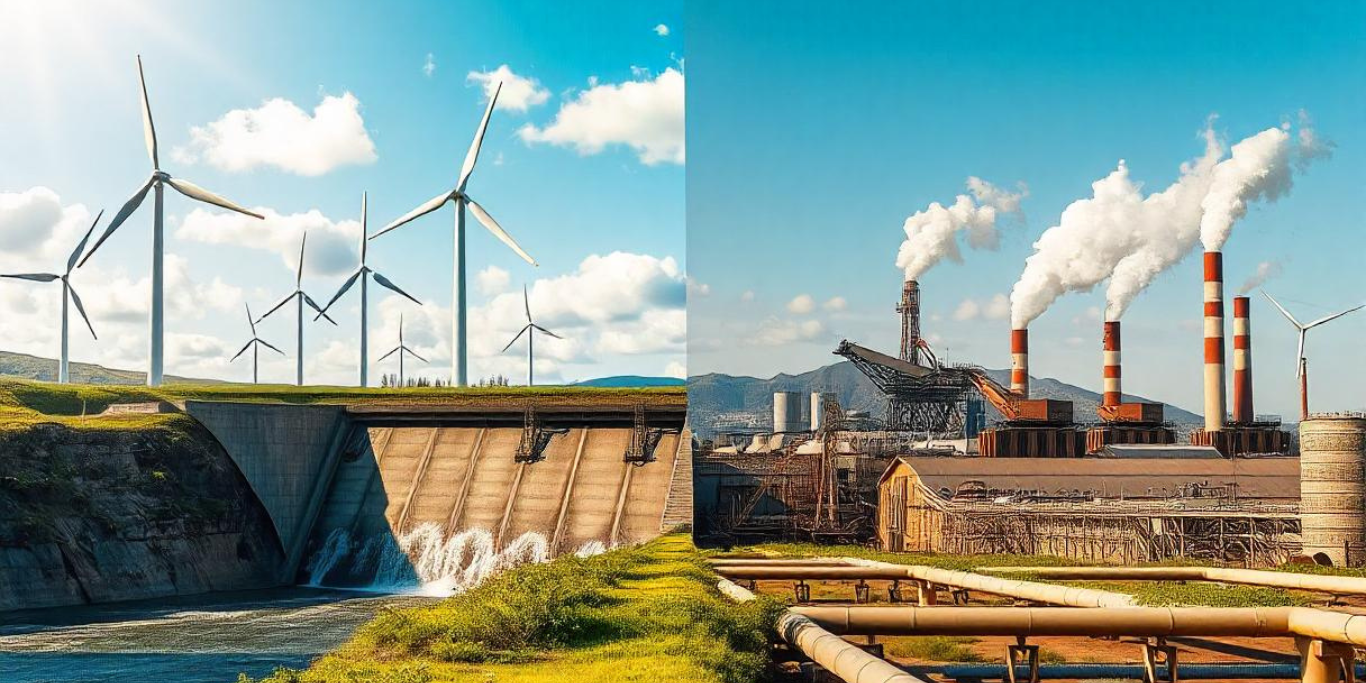
Josefina Carbonell EN
What Are the Differences Between Nonrenewable and Renewable Resources?
Understanding what are the differences between nonrenewable and renewable resources is key to navigating the future of energy production and consumption. These two types of resources have a significant impact on our environment, economy, and daily lives. This article will help clarify the characteristics of each resource, focusing on their advantages and disadvantages, and why transitioning to renewable energy is essential for sustainability.
What Are Nonrenewable Resources?
Nonrenewable resources are natural resources that exist in finite quantities. They are not replenished on a human timescale, meaning once they are depleted, they cannot be replaced. The primary examples of nonrenewable energy resources include fossil fuels (coal, oil, and natural gas) and nuclear energy, which relies on uranium.
Advantages of Nonrenewable Energy Resources
Despite their environmental impacts, nonrenewable energy resources offer several benefits:
- High energy output: These resources provide large amounts of energy per unit, making them effective for meeting large-scale energy demands.
- Well-developed infrastructure: The extraction, transportation, and distribution of nonrenewable energy are supported by an extensive infrastructure, making them easily accessible.
Disadvantages of Nonrenewable Energy Resources
However, the reliance on nonrenewable resources has serious downsides:
- Environmental harm: The extraction and combustion of fossil fuels lead to air pollution, greenhouse gas emissions, and climate change.
- Finite availability: As these resources are used up, their scarcity increases, driving up costs and creating geopolitical tensions over remaining supplies.
What Are Renewable Resources?
In contrast to nonrenewable resources, renewable energy resources are naturally replenished over short timescales. They include solar, wind, hydroelectric, geothermal, and biomass energy. These resources are considered sustainable because they do not deplete over time and have minimal environmental impacts when harnessed properly.
If you’re curious about how Spain is leading the way in renewable energy, check out Green Energy in Spain: Leading the Way to a Sustainable Future to explore the innovative initiatives making a difference.
Advantages of Renewable Energy Resources
The shift toward renewable energy resources offers numerous benefits, particularly in combating climate change:
- Sustainability: Resources like sunlight, wind, and water are abundant and continuously replenished, ensuring long-term availability.
- Low environmental impact: Most renewable energy technologies produce little to no emissions, helping reduce carbon footprints and mitigate global warming.
For a deeper dive into the renewable energy projects driving change, visit our article on Renewable Energy Projects in Spain: A Comprehensive Guide to Green Energy Initiatives.
Disadvantages of Renewable Energy Resources
While renewable resources are the future, there are a few challenges to consider:
- Intermittency: Some renewable technologies, such as solar and wind power, can be intermittent, meaning their energy output can fluctuate depending on weather conditions. However, this can be addressed with energy storage solutions or backup systems.
Are you considering solar energy? Learn how batteries for solar power storage can help you manage energy more effectively and make the most of your renewable energy system.
Advantages and Disadvantages of Nonrenewable Energy Resources
To better understand what are the differences between nonrenewable and renewable resources, it’s crucial to weigh the advantages and disadvantages of nonrenewable resources. While nonrenewable resources are critical in the energy mix, their limitations are becoming more apparent as global energy needs evolve.
- Advantages: Nonrenewable resources are highly efficient, provide stable and consistent energy, and support well-established economic systems.
- Disadvantages: Their environmental impact, limited supply, and rising costs pose significant challenges for long-term sustainability.
Advantages and Disadvantages of Renewable Energy Resources
On the other hand, renewable energy resources come with their own set of benefits and challenges:
- Advantages of Renewable Energy Resources: They are clean, abundant, and contribute to reducing the reliance on fossil fuels.
- Disadvantages of Renewable Energy Resources: Some renewable technologies, such as solar and wind, can be intermittent, requiring energy storage solutions or backup systems to ensure a consistent power supply.
Energy Resources and Fossil Fuels Answer Key
An important aspect of understanding energy is recognizing the role of energy resources and fossil fuels. Fossil fuels, while being a significant energy source, contribute to environmental degradation. However, they are still integral to global energy production, though the future is shifting toward cleaner, more sustainable options.
Energy Resources and Fossil Fuels Answer Key provides a concise overview of how these resources work and their potential for the future. Fossil fuels are finite and heavily polluting, whereas renewable resources, though currently less widespread, offer the promise of a cleaner and more sustainable energy future.
Conclusion: The Future of Energy Resources
In conclusion, what are the differences between nonrenewable and renewable resources comes down to sustainability, availability, and environmental impact. Nonrenewable resources have been vital to industrialization but are unsustainable in the long term. Renewable energy resources provide a promising solution, reducing our carbon footprint and ensuring a cleaner, more sustainable future. As we continue to transition toward greener energy options, understanding these resources and their impacts is crucial for making informed decisions that benefit both the environment and the economy.
At Evergreen Eléctrica, we are dedicated to providing sustainable energy solutions, including renewable energy resources such as solar and wind power. If you’re ready to make the switch to cleaner energy, contact us today to explore your options!
Explore More on Our Blog
If you’re interested in learning more about how renewable energy works and how it can help you reduce your environmental impact, visit our blog for more articles, tips, and the latest news on solar power, wind energy, and sustainable living. Stay informed and make the best decisions for a cleaner, greener future with Evergreen Eléctric











